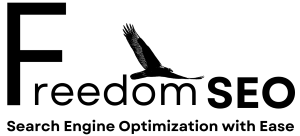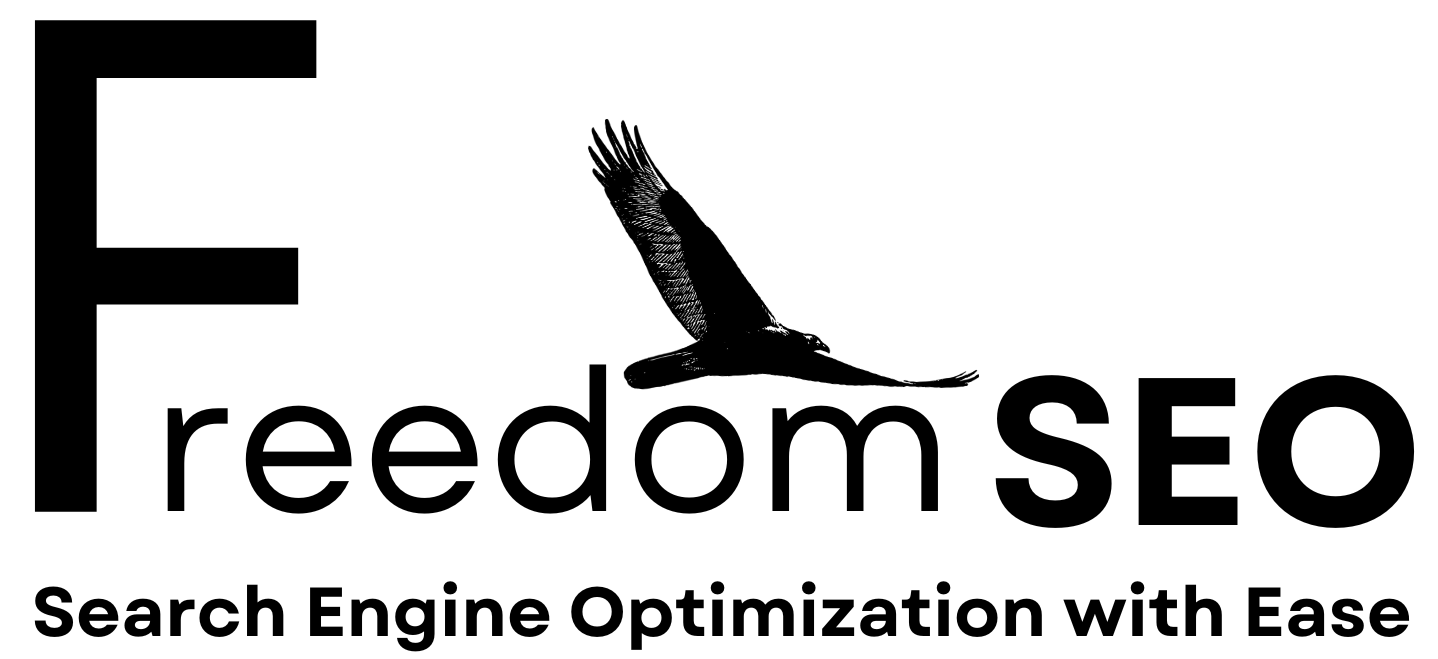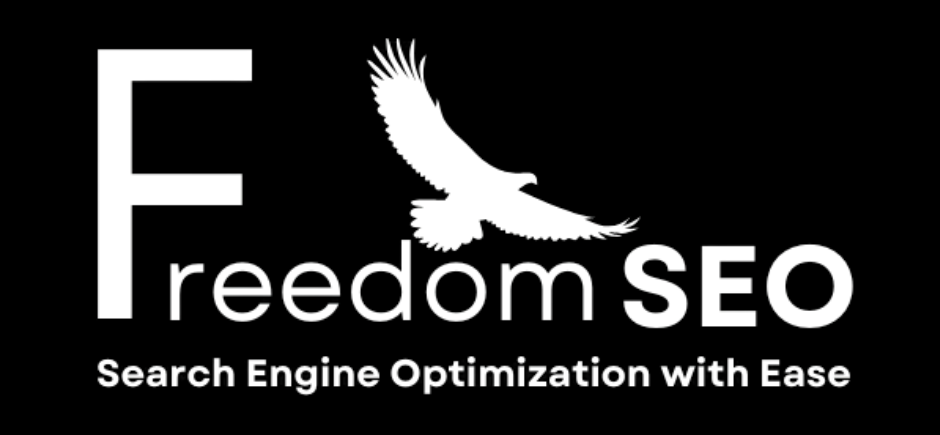Affordable SEO Strategies for Canadian DIY Businesses in 2025

Canadian DIY businesses are looking for ways to stand out online without draining their wallets. Here is something that might surprise you. Completing your Google My Business profile makes you 2.7 times more likely to be seen as reputable by customers yet most business owners focus their budget elsewhere. Smart, affordable SEO strategies are actually hiding in plain sight for 2025 and you might be missing the easiest wins.
Table of Contents
Quick Summary
| Takeaway | Explanation |
|---|---|
| Leverage Free Tools for Keyword Research | Utilize resources like Google Keyword Planner and Google Trends to identify valuable keywords without incurring costs. |
| Optimize Google My Business Profile | Completing and regularly updating your GMB profile increases visibility and credibility, making it 2.7 times more likely to be considered reputable. |
| Focus on Long-Tail Keywords | Target specific phrases that match niche offerings, as they often have lower competition and higher conversion potential. |
| Engage in Review Management | Actively encourage and respond to customer reviews to enhance local SEO and demonstrate commitment to customer satisfaction. |
| Create High-Quality, Relevant Content | Producing valuable content attracts natural backlinks, which is essential for effective link building and improving online visibility. |

Smart Keyword Research on a Budget
Keyword research doesn’t have to drain your marketing budget. Canadian DIY businesses can unlock powerful affordable SEO strategies by leveraging smart, cost-effective research techniques that reveal valuable insights without expensive tools.
Free Tools and Strategic Approaches
Small businesses can tap into a wealth of free keyword research resources that provide robust data. Google Keyword Planner remains an excellent starting point for understanding search volume and competition levels. This platform allows businesses to explore keyword ideas directly from Google’s own search data, offering insights into what potential customers are searching online.
Additionally, Google Trends offers another complementary free tool that helps businesses understand keyword popularity over time. By analyzing seasonal trends and regional search patterns, DIY entrepreneurs can refine their keyword strategies to match current search behaviors. The platform reveals how search interest fluctuates, enabling more targeted content planning.
Below is a summary table comparing the recommended free keyword research tools and their key features mentioned above.
| Tool | Main Features | Benefit for DIY Businesses |
|---|---|---|
| Google Keyword Planner | Search volume, competition, keyword ideas | Insight into what customers are searching for |
| Google Trends | Keyword popularity over time, regional trends | Identify seasonal and regional search opportunities |
Leveraging Long-Tail Keywords
One of the most cost-effective keyword research strategies involves focusing on long-tail keywords. Unlike broad, competitive terms, long-tail keywords are specific phrases that target niche audiences. According to research from HubSpot , long-tail keywords often convert better because they represent more precise user intent.
For Canadian DIY businesses, this means identifying highly specific search terms that align closely with their unique offerings. For example, instead of targeting a generic term like “home renovation,” a business might optimize for “affordable basement renovation techniques in Toronto” or “sustainable kitchen remodeling for small spaces.” These detailed keywords typically have lower competition and higher conversion potential.
Competitive Keyword Analysis
Competitive analysis provides another budget-friendly keyword research approach. By examining competitors’ content and keyword strategies, businesses can uncover valuable opportunities without significant financial investment. SEMrush suggests using free browser extensions and basic online tools to identify the keywords driving traffic to similar businesses in your industry.
Start by listing direct competitors and analyzing their website content, meta descriptions, and page titles. Look for recurring keywords and themes that seem to generate engagement. Tools like Ubersuggest offer limited free searches that can provide initial competitive insights without requiring a paid subscription.
Remember that effective keyword research is an ongoing process. As search behaviors evolve, businesses must continuously refine their strategies. By combining free tools, strategic thinking, and a focus on precise, relevant keywords, Canadian DIY businesses can develop robust SEO approaches that drive meaningful online visibility without excessive spending.
The key is creativity, persistence, and a willingness to experiment with different keyword research techniques that align with your specific business goals and target audience.
Local SEO Tactics for Canadian Businesses

Local SEO represents a critical strategy for Canadian DIY businesses seeking to dominate their regional digital marketplace. By implementing targeted tactics, small businesses can significantly enhance their online visibility and attract more local customers.
To help you understand and track the core components for successful local SEO, here is a checklist table summarizing the main actions discussed in this section.
| Local SEO Action | Description | Status |
|---|---|---|
| Google My Business Optimization | Complete and update profile, add images, use local keywords, encourage reviews | |
| Local Citation Management | Ensure NAP consistency across all directories and platforms | |
| Review Management and Local Engagement | Encourage reviews, respond professionally, participate in community initiatives |
Google My Business Optimization
A robust Google My Business (GMB) profile serves as the cornerstone of effective local SEO. According to Canada Business Network , businesses that complete their GMB profile are 2.7 times more likely to be considered reputable by potential customers. This means providing comprehensive and accurate information including precise business hours, service areas, high-quality images, and detailed service descriptions.
Key optimization strategies include regularly updating your profile with fresh content, adding relevant business categories, and encouraging customer reviews. Uploading recent photos of your workspace, team, or completed projects can dramatically increase user engagement and search visibility. Canadian businesses should also ensure their GMB listing includes local keywords that reflect their specific regional context.
Strategic Local Citation Management
Local citations play a crucial role in strengthening local search rankings. Canadian Internet Registration Authority emphasizes the importance of maintaining consistent Name, Address, and Phone (NAP) information across all online platforms. Inconsistent citations can confuse search engines and potentially harm your local search performance.
DIY businesses should audit their online presence by checking listings on platforms like Yelp, Yellow Pages, industry-specific directories, and local chamber of commerce websites. Ensure that every mention of your business contains identical contact information. Some free tools can help identify and correct inconsistent citations, helping businesses maintain a clean and reliable online footprint.
Review Management and Local Engagement
Customer reviews are more than just feedback they are a powerful local SEO signal. BDC research indicates that 90% of consumers read online reviews before visiting a business. For Canadian DIY businesses, this means developing a proactive approach to review management.
Encourage satisfied customers to leave detailed reviews by making the process simple. Create follow-up emails or SMS messages with direct review links. Respond professionally to both positive and negative reviews, demonstrating your commitment to customer satisfaction. Negative reviews, when handled correctly, can actually improve your business’s perceived authenticity and customer service quality.
Local engagement extends beyond online reviews. Participate in local community events, collaborate with other Canadian businesses, and create content that resonates with your regional audience. Share local success stories, highlight community projects, and showcase how your DIY business contributes to the local economy.
Successful local SEO is not about quick fixes but consistent, strategic efforts. By focusing on comprehensive GMB optimization, maintaining accurate citations, and actively managing customer reviews, Canadian DIY businesses can create a powerful local online presence that attracts and retains customers.
DIY Link Building and Content Creation
For Canadian DIY businesses, link building and content creation represent powerful yet cost-effective strategies to enhance online visibility without breaking the bank. By understanding and implementing strategic approaches, businesses can develop robust digital marketing efforts that drive organic traffic and improve search engine rankings.
Strategic Content Development
Creating high-quality, relevant content remains the most sustainable approach to link building. According to Search Engine Journal , businesses that consistently produce valuable content are more likely to attract natural backlinks. This means developing resources that genuinely help your target audience solve problems or answer specific questions.
For DIY businesses, this could involve creating detailed how-to guides, video tutorials, infographics, or comprehensive blog posts that showcase technical expertise. Focus on addressing specific challenges your target audience encounters. For instance, a home renovation DIY business might create a comprehensive guide to budget-friendly home improvement techniques, which could attract links from home design blogs, local real estate websites, and community forums.
Low-Cost Link Building Techniques
Building quality links doesn’t require significant financial investment. Moz recommends several affordable strategies that Canadian DIY businesses can implement. These include participating in local business directories, engaging with community forums, and leveraging social media platforms to share valuable content.
Start by identifying local business associations, chambers of commerce, and industry-specific directories where you can list your business. Many of these platforms offer free or low-cost listing options. Create profiles on platforms like LinkedIn, participate in relevant online discussions, and share your expertise. Networking with local businesses and offering to exchange guest blog posts or collaborative content can also generate valuable backlinks without monetary expense.
Leveraging User-Generated Content
User-generated content represents an often-overlooked link-building strategy. According to Neil Patel , encouraging customers to share their experiences can create authentic content that naturally attracts links and improves search engine visibility. For DIY businesses, this might involve creating platforms for customer testimonials, project showcase galleries, or community forums.
Implement strategies that motivate customers to share their experiences. This could include featuring customer project photos on your website, running social media contests that encourage user submissions, or creating a review section that highlights successful DIY projects completed using your services or products. Each piece of user-generated content becomes a potential link magnet, increasing your online visibility.
Successful link building is not about quantity but quality. Canadian DIY businesses should focus on creating genuine, valuable connections that provide real value to their target audience. By developing strategic content, leveraging local networks, and encouraging user engagement, businesses can build a robust online presence without significant financial investment.
Remember that link building is a long-term strategy. Consistency, creativity, and a genuine commitment to providing value will ultimately drive your digital marketing success. Each piece of content, each connection, and each shared experience contributes to building a stronger, more visible online presence for your DIY business.
Free and Low-Cost SEO Tools to Use
Canadian DIY businesses can significantly enhance their online presence without hefty investments by leveraging free and low-cost SEO tools. Strategic tool selection enables businesses to perform comprehensive digital marketing tasks while maintaining a lean budget.
To make it easier to choose the right tool for specific SEO needs, the table below summarizes the main free and low-cost tools discussed in this section, along with their core functions.
| Tool | Main Use | Notable Features/Benefits |
|---|---|---|
| Google Search Console | Website performance & indexing | Search visibility, indexing insights, identify issues |
| Google Analytics | Analytics & reporting | Track traffic & user behaviour, free & comprehensive |
| Ubersuggest | Keyword research | Free searches, keyword ideas, competition analysis |
| Yoast SEO (WordPress) | Content optimization | Readability, meta description, keyword suggestions |
| Screaming Frog (Free) | Technical SEO audit | Find broken links, missing/duplicate metadata |
| Answer the Public | Content ideation | Generates question-based keyword ideas |
Website Performance and Analytics Tools
Google Search Console stands out as a critical free resource for understanding website performance. According to Search Engine Journal , this platform provides detailed insights into search visibility, indexing status, and potential technical issues that might impact search rankings.
Another powerful free tool is Google Analytics , which offers comprehensive website traffic analysis. Businesses can track user behavior, understand audience demographics, and identify which content drives the most engagement. The platform helps DIY entrepreneurs make data-driven decisions about their digital marketing strategies without spending money on expensive analytics software.
Keyword Research and Content Optimization
Keyword research doesn’t require significant financial investment. Ubersuggest provides a free version that allows businesses to explore keyword ideas, analyze search volume, and understand competition levels. The tool helps Canadian DIY businesses identify niche keyword opportunities that can improve their search engine rankings.
For WordPress users, Yoast SEO offers a robust free plugin that guides content optimization. The tool provides real-time suggestions for improving readability, keyword usage, and meta descriptions. According to WPBeginner , over 5 million websites use Yoast SEO to enhance their search visibility.
Technical SEO and Competitive Analysis
Screaming Frog offers a free version of their SEO Spider tool, which allows businesses to conduct comprehensive website audits. The tool crawls websites to identify technical issues like broken links, missing meta descriptions, and duplicate content. For DIY businesses with limited technical expertise, this tool provides invaluable insights into website health.
Answerthepublic is another free tool that helps businesses understand user search intentions. By generating comprehensive question-based keyword variations, businesses can create content that directly addresses potential customer queries. This approach not only improves SEO but also enhances user engagement.
While free tools offer significant value, businesses should remember that they often come with limitations. The free versions typically provide basic features, with advanced functionalities reserved for paid plans. Smart DIY businesses will start with these free tools, understand their capabilities, and gradually invest in more advanced solutions as their digital marketing needs grow.
Successful SEO is about strategic implementation, not just tool acquisition. By combining these free resources with creativity and consistent effort, Canadian DIY businesses can develop a robust online presence without substantial financial investment. The key is continuous learning, experimentation, and adapting strategies based on real-world performance data.
Frequently Asked Questions
What are affordable SEO strategies for Canadian DIY businesses?
Affordable SEO strategies include optimizing your Google My Business profile, leveraging long-tail keywords, and creating valuable content to attract natural backlinks.
How can I optimize my Google My Business profile?
Ensure your Google My Business profile is fully completed with accurate information, high-quality images, and local keywords. Regular updates and encouraging customer reviews can significantly increase your visibility.
What is the importance of long-tail keywords in SEO?
Long-tail keywords are specific phrases that often have lower competition and higher conversion potential, making them ideal for Canadian DIY businesses targeting niche markets.
What tools can I use for budget-friendly keyword research?
Free tools like Google Keyword Planner, Google Trends, and Ubersuggest can help you identify effective keywords without incurring costs.
Ready to Claim Your Spot in the Top 3 on Google?
You have just seen how affordable SEO strategies can lift Canadian DIY businesses above the competition. If you are struggling to get your business noticed online or feel frustrated that your Google My Business profile is not bringing in customers, you are not alone. The article highlights how vital local SEO, long-tail keywords, and trustworthy reviews are for standing out in 2025. Missing out on these steps could mean losing customers to competitors who are mastering them.

Now is the time to take control. At Freedom SEO , we turn what you have learned into real results for your business by offering proven Local SEO Services in Canada. We help Canadian DIY businesses like yours complete their Google profiles, manage local reviews, and climb to the top ranks on Google quickly. Visit our main website to connect with an expert and start your journey to the top today. Do not let another customer choose your competitor—get your free consultation now.
Recommended

















